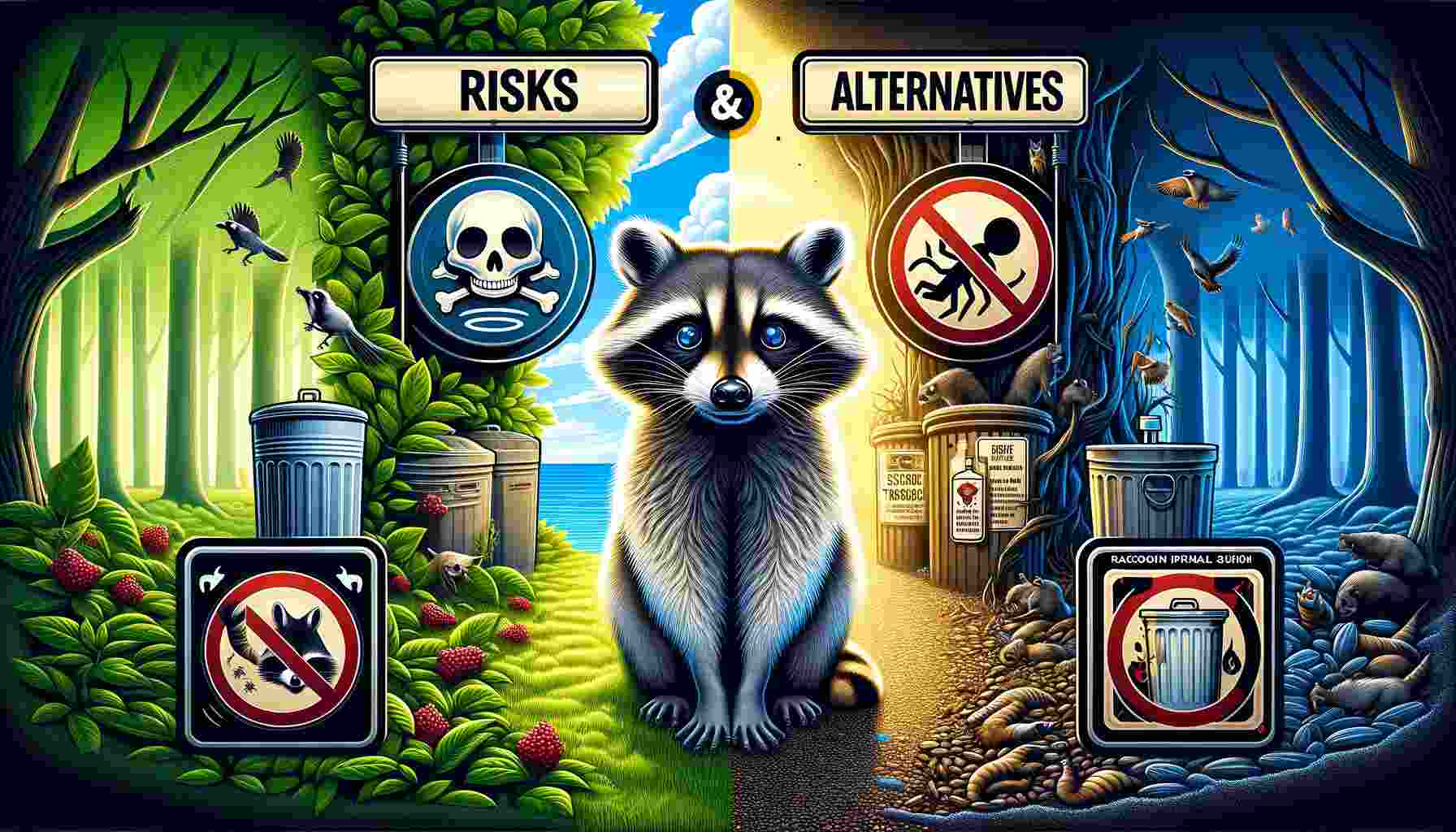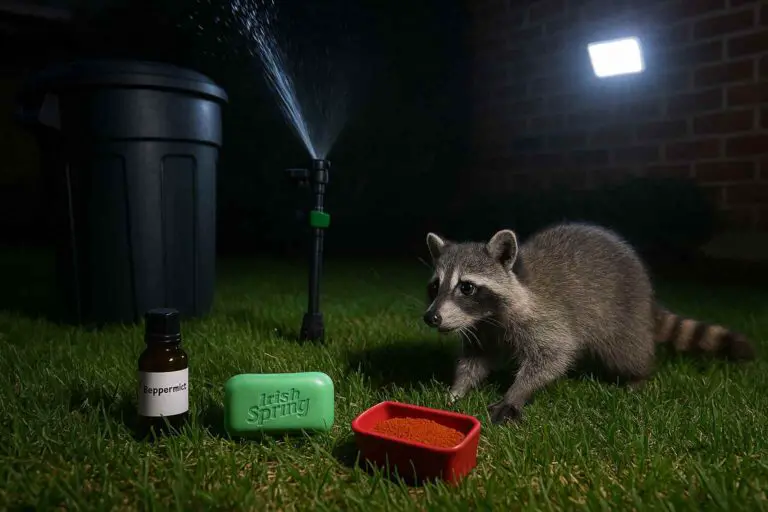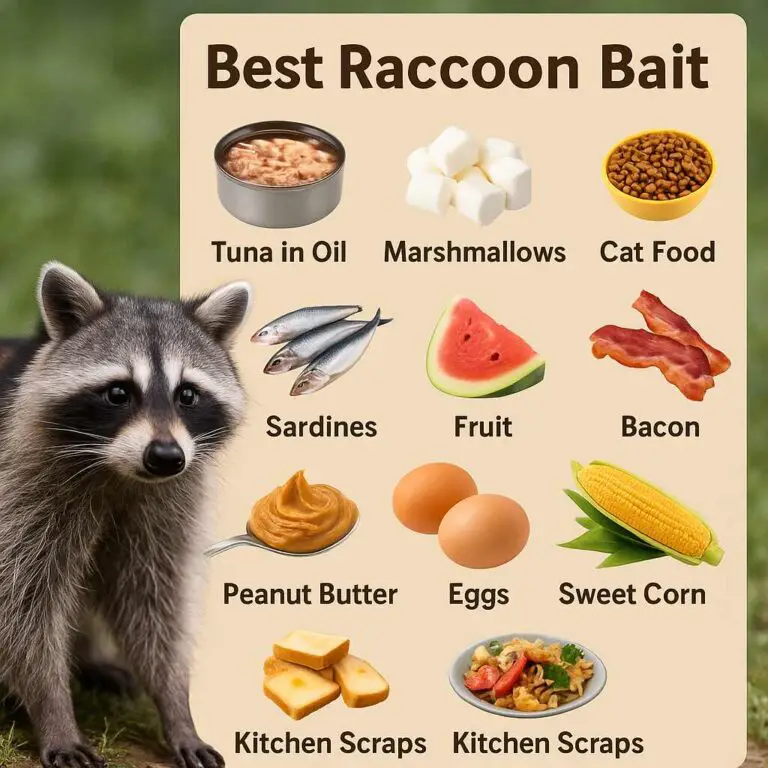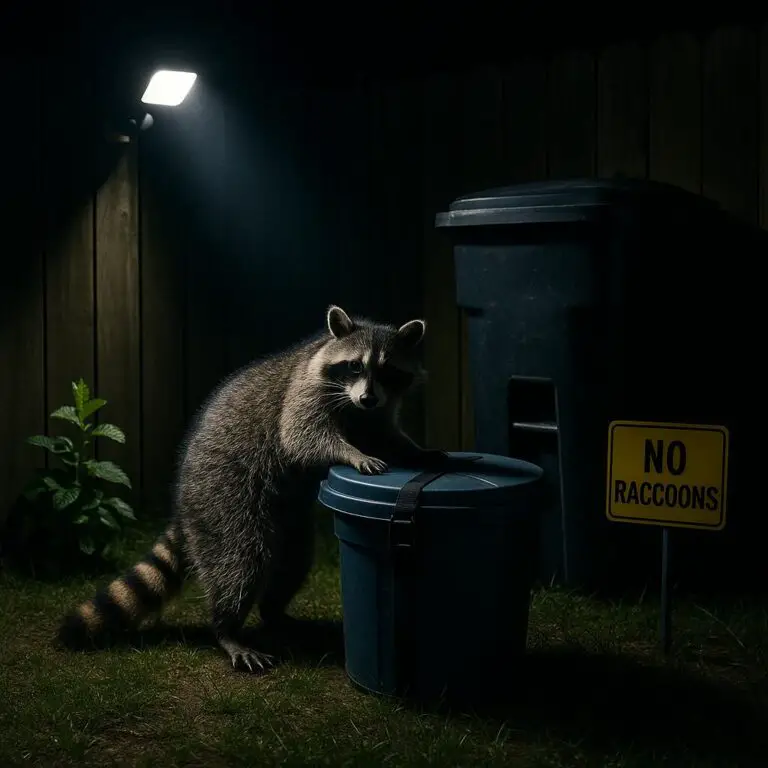Raccoons are fascinating creatures known for their intelligence and adaptability. However, when these masked bandits encroach upon human habitats, conflicts can arise, prompting individuals to seek solutions for their removal. Among the various options available, raccoon poison often emerges as a consideration.
Understanding Raccoon Poison
Understanding the effects of these poisons is critical in assessing the risks they pose to raccoons and the environment.
Types of Poison
- Anticoagulant: Typically employed as a rodenticide, anticoagulant poison disrupts blood clotting, resulting in internal bleeding and eventual death within a few days.
- Antifreeze: Containing ethylene glycol, antifreeze prompts organ failure, leading to death in raccoons within approximately 24 hours of ingestion.
- Strychnine: This poison induces death in raccoons through extreme exhaustion and muscular convulsions, resulting in a painful demise.
- Bromethalin and Cholecalciferol: Both lethal to raccoons, these substances operate via distinct modes of action, ultimately leading to mortality.
Risks and Concerns
Using poison as a method of raccoon control poses significant risks and concerns, both to the environment and to human and animal health. Here are some key considerations:
- Environmental Impact: Raccoon poisoning can have far-reaching consequences for ecosystems and wildlife. Non-target species, including birds of prey, scavengers, and domestic animals, are at risk of ingesting poisoned raccoons, leading to secondary poisoning and ecological imbalance.
- Human Health Risks: Accidental ingestion or exposure to raccoon poison can result in serious illness or death in humans. Children, pets, and wildlife are particularly vulnerable to unintentional poisoning, with symptoms ranging from nausea and vomiting to organ failure.
- Legal Ramifications: The use of raccoon poison is often subject to strict regulations and legal restrictions. Violating these laws can result in hefty fines, legal penalties, and damage to public trust in wildlife management practices. It’s essential to research and comply with local wildlife regulations before using any control methods.
- Ineffectiveness and Unpredictability: There’s no guarantee that raccoon poison will effectively eliminate targeted individuals. Raccoons may not consume the poison, or they may perish in inaccessible locations, leading to decaying carcasses and foul odors. Moreover, poisoning raccoons may not address underlying factors contributing to human-wildlife conflicts.
- Ethical Considerations: Using poison to control raccoons raises ethical concerns regarding animal welfare and humane treatment. Poisoning raccoons results in prolonged suffering and painful deaths, which contradict the principles of compassion and responsible stewardship of wildlife.
- Long-Term Consequences: Poisoning raccoons can have long-term consequences for ecosystems, including the disruption of food chains and the decline of predator populations. This can lead to ecological imbalances and unintended consequences for biodiversity and ecosystem health.
Alternatives to Raccoon Poison
When faced with raccoon infestations or nuisance behavior, resorting to poison is not only inhumane but also poses significant risks to the environment, wildlife, and pets. Fortunately, there are several humane and effective alternatives available. Here are some recommended alternatives to raccoon poison:
- Live Traps: Utilize live traps specifically designed for raccoons to capture them without causing harm. Once captured, raccoons can be safely relocated to suitable habitats away from residential areas.
- Exclusion Techniques: Prevent raccoons from accessing your property by sealing entry points, installing chimney caps, and securing garbage bins with tight-fitting lids. This reduces opportunities for raccoons to establish dens or forage for food on your property.
- Habitat Modification: Remove attractants such as pet food left outdoors, fallen fruits, and unsecured trash. Maintaining a clean and clutter-free environment can discourage raccoons from seeking shelter or food near human dwellings.
- Natural Repellents: Explore natural repellents such as predator urine, ammonia-soaked rags, or commercial deterrent sprays to discourage raccoons from entering your property. These repellents emit odors or tastes that raccoons find unpleasant without causing harm.
- Ultrasonic Devices: Install ultrasonic-repellent devices that emit high-frequency sound waves to deter raccoons and other nuisance animals. These devices are imperceptible to humans but irritating to raccoons, prompting them to leave the area.
- Professional Assistance: If raccoon infestations persist or if you’re unsure how to handle the situation, seek assistance from licensed wildlife professionals or pest control experts. They have the expertise and resources to address raccoon issues safely and effectively.
Product Recommendation
When it comes to managing raccoon infestations without resorting to harmful poisons, there are several effective and human alternatives available. Here are some recommended products to help you address raccoon issues safely and responsibly.
- Havahart Live Animal Trap: This durable and humane trap is designed to capture raccoons without causing harm. Its smooth internal edges ensure the raccoon’s safety during capture, allowing for easy relocation away from your property.
- Liquid Fence Deer & Rabbit Repellent: This natural repellent effectively deters raccoons and other wildlife from entering your yard by emitting a scent that mimics predators’ presence. It’s safe to use around plants and won’t harm the environment.
- Critter-Proof Garbage Bins: Invest in critter-proof garbage bins equipped with locking lids or bungee cord fasteners to prevent raccoons from accessing your trash. These bins are sturdy, weather-resistant, and specifically designed to keep wildlife out.
- Bird-X Yard Gard Ultrasonic Repeller: Utilize ultrasonic technology to repel raccoons and other nuisance animals from your property. The Yard Gard emits high-frequency sound waves that are imperceptible to humans but irritating to raccoons, encouraging them to leave the area.
- Tuff Gut Raccoon Excluder: Install this durable excluder over potential entry points, such as attic vents or chimney openings, to prevent raccoons from gaining access to your home. Its sturdy construction ensures long-lasting protection against unwanted intruders.
Raccoons Statistics
Here are some relevant statistics and insights about raccoons:
- The raccoon population in North America is estimated to range from 5 million to 10 million, possibly even reaching upwards of 20 million. Some areas in the United States have reported up to 700 raccoons per square mile.
- Over 20 million raccoons are estimated to live in the United States, with their population having rebounded significantly since the mid-20th century due to increased forested areas and urban development providing ample food sources.
- Georgia has the highest raccoon population in the United States, with an estimated 1.4 million raccoons. This high population is attributed to the state’s warm climate, abundant food sources, and diverse habitats, including forests, wetlands, and urban areas.
These statistics underscore the adaptability and widespread presence of raccoons across the United States, highlighting the importance of responsible wildlife management and the need for humane alternatives to poisoning.
FAQs
Here are some additional frequently asked questions (FAQs) about raccoon control and management.
1. Is it safe to handle raccoons on my own if they invade my property?
- It is not recommended to handle raccoons without proper training and protective gear. Raccoons can carry diseases such as rabies and roundworm, which can pose health risks to humans. Contacting a professional wildlife removal service is the safest approach for dealing with raccoon invasions.
2. How can I tell if raccoons are living in my attic or crawl space?
- Signs of raccoon activity in attics or crawl spaces may include loud noises at night, droppings, torn insulation or ductwork, and visible entry points on the exterior of the building. If you suspect raccoons are present, it’s best to consult with a wildlife removal expert to assess the situation.
3. Are there any natural deterrents I can use to keep raccoons away from my property?
- Yes, there are several natural deterrents that may help discourage raccoons from frequenting your property. These include ammonia-soaked rags, predator urine, motion-activated lights or sprinklers, and planting thorny or prickly plants around potential entry points.
4. What should I do if I find a baby raccoon (kit) without its mother?
- If you encounter a baby raccoon without its mother, observe from a distance for a few hours to see if the mother returns. If the mother does not return and the kit appears to be in distress or injured, contact a local wildlife rehabilitator for assistance. Attempting to care for the kit on your own can be challenging and may not be in the best interest of the animal.
5. Can raccoons climb fences or walls to access my property?
- Yes, raccoons are excellent climbers and can easily scale fences, walls, and trees to access food sources or shelter. To prevent raccoons from entering your property, ensure that fences are at least 6 feet tall and do not have any footholds or gaps that raccoons can exploit.
6. Will raccoons attack humans or pets if they feel threatened?
- While raccoons are generally not aggressive towards humans or pets, they may defend themselves if they feel threatened or cornered. It’s important to avoid approaching or provoking raccoons, especially if they are exhibiting signs of aggression or distress. Keeping pets indoors or supervised when raccoons are active can help minimize potential conflicts.
7. Are there any legal restrictions on relocating raccoons to another area?
- Yes, there may be legal restrictions or regulations regarding the relocation of raccoons in your area. It’s important to check local wildlife laws and regulations before attempting to relocate raccoons on your own. In many cases, licensed wildlife professionals are required to handle the trapping and relocation of raccoons to ensure compliance with legal requirements.
8. How can I prevent raccoons from tipping over my garbage cans or raiding my compost bin?
- To prevent raccoons from accessing garbage cans or compost bins, use secure lids with locking mechanisms or bungee cords to keep them tightly closed. Additionally, storing garbage cans in a garage or shed until the morning of pickup can help deter raccoons from rummaging through them. Avoid leaving pet food or birdseed outdoors, as these can also attract raccoons.
Conclusion
Raccoons are a natural part of our ecosystem, and conflicts with them can be resolved through humane and responsible approaches. Raccoon poison poses significant risks to wildlife, pets, and the environment, making it an unsuitable option for control. By embracing alternatives such as trapping, exclusion, and habitat modification, individuals and communities can manage raccoon populations effectively while promoting coexistence and environmental stewardship. Together, we can create environments where both humans and raccoons can thrive harmoniously.
In need of assistance with raccoon removal? Consider reaching out to local wildlife removal professionals who specialize in humane and effective solutions. Prioritize the well-being of both raccoons and the ecosystem, fostering a culture of compassion and responsible stewardship.








